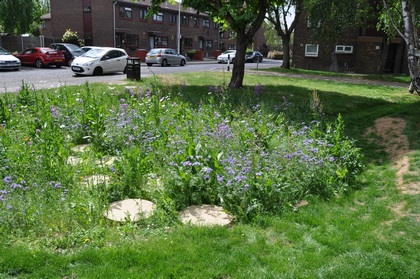
Talk to as many of your neighbours as you can, and spend more time listening to their concerns than talking yourself. Focus on what you have in common, and stay positive.
Start small- perhaps choose just one issue to start, unless you have a lot of time and energy and neighbourhood support.
Ask for the owners or management company to –
-try not using pesticides or herbicides for a temporary period, and see how it goes.
-let you install a couple of bird or bat boxes, or retrofit swift bricks.
-not to mow a small, less-trafficked area, and to let you put a small informational sign so people understand why it’s not being mowed.
Late fall or early spring is a good time to plant a wildlife hedge or small thicket, if there is a good place to add that in the common spaces.
Possibly, rats are a problem due to availability of food in rubbish, and if rubbish is kept in sealed bins, poison will not be necessary. Alert residents that the poison enters the food chain and can sicken or kill foxes, which normally help to keep the rat population in check.
Note that it is illegal to poison or kill foxes or bats or birds of prey, and is punishable by a large fine.
